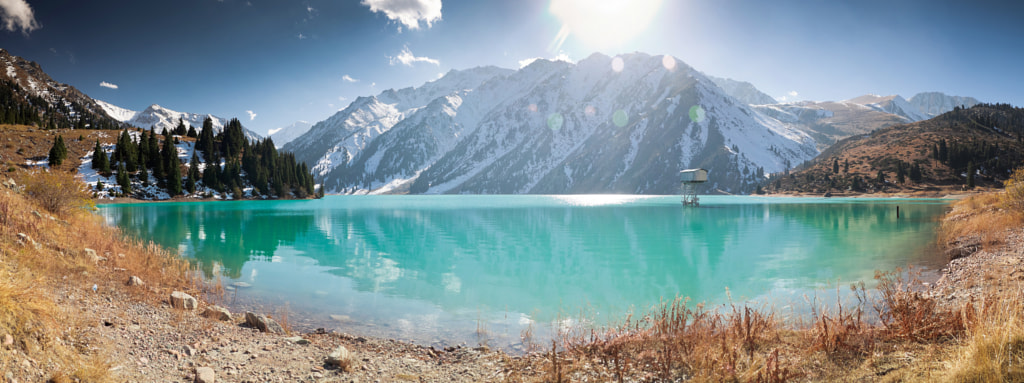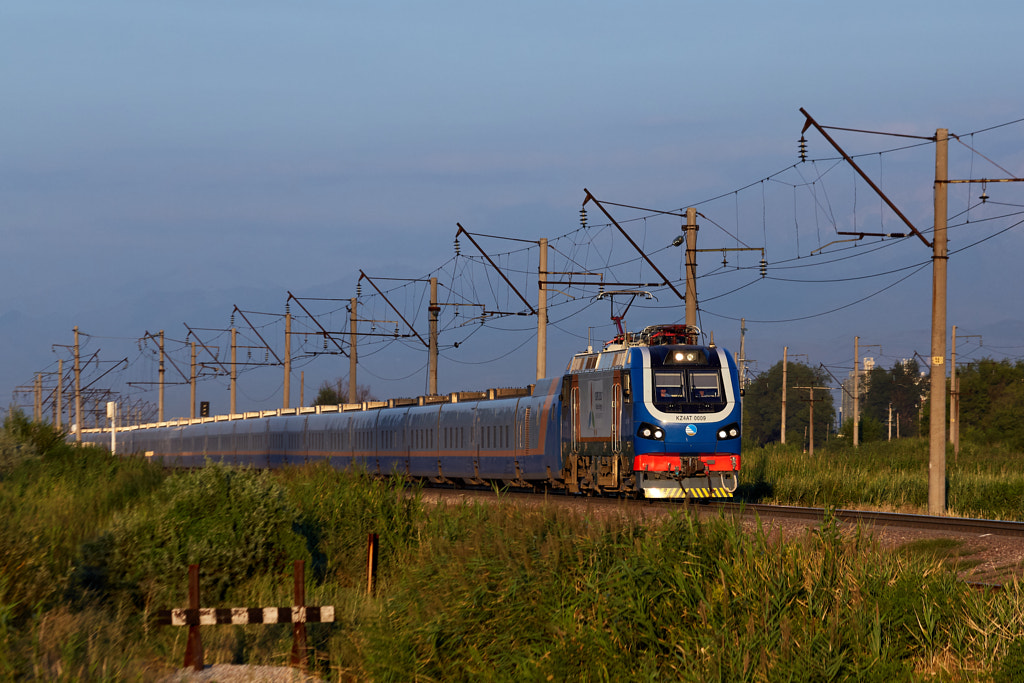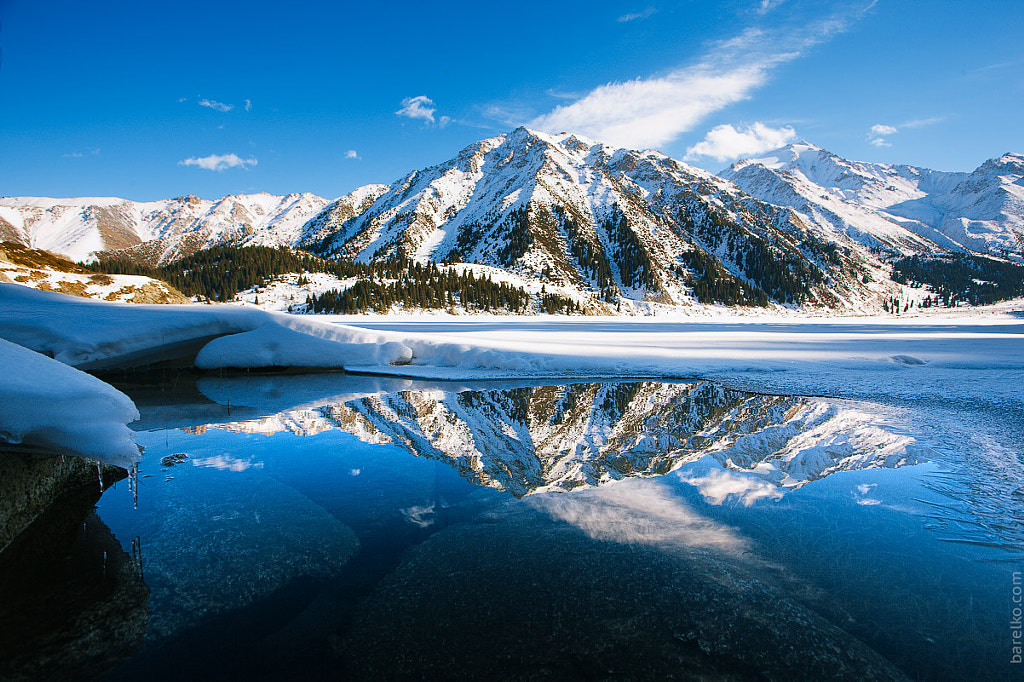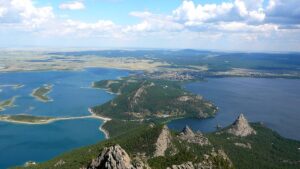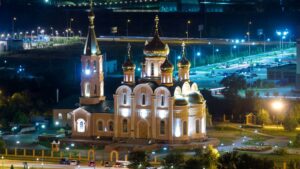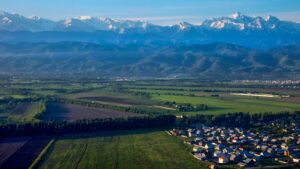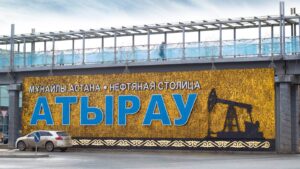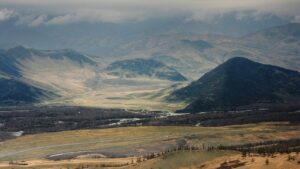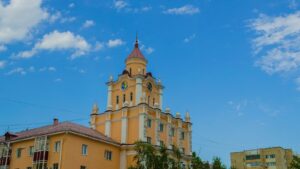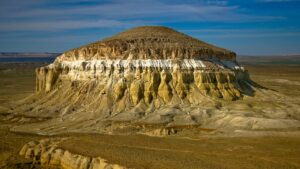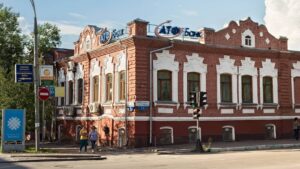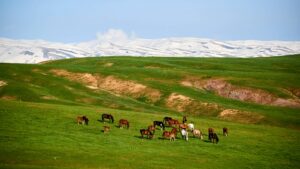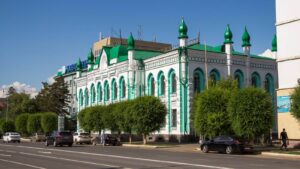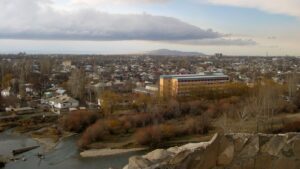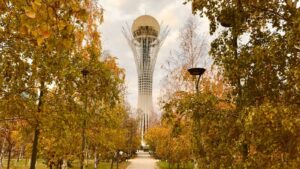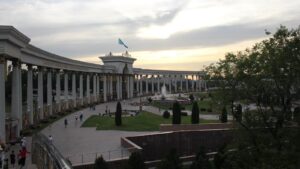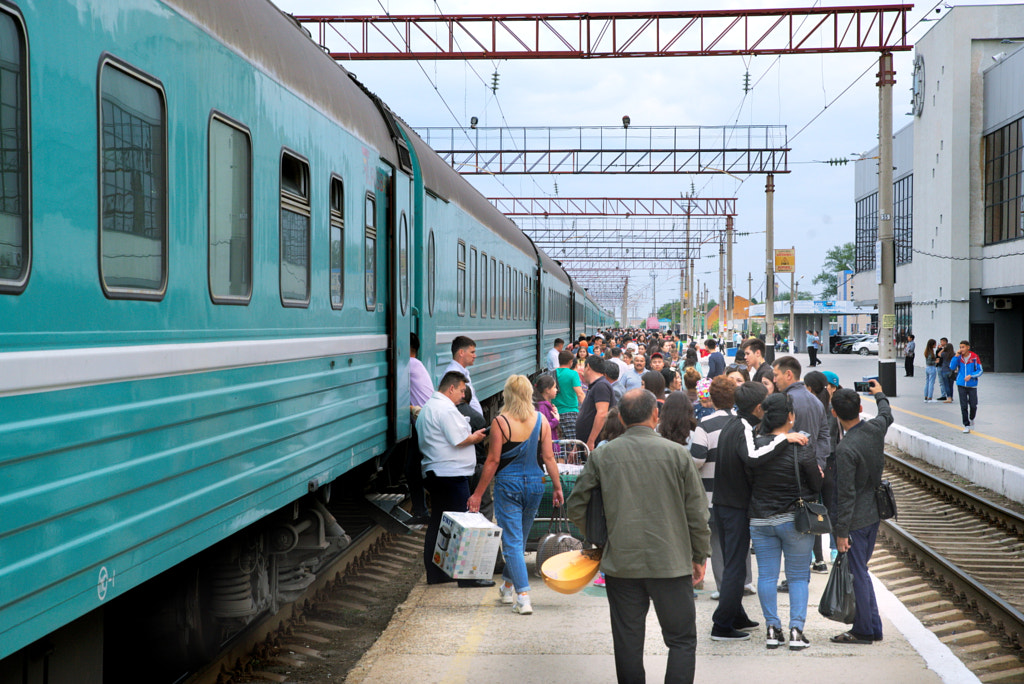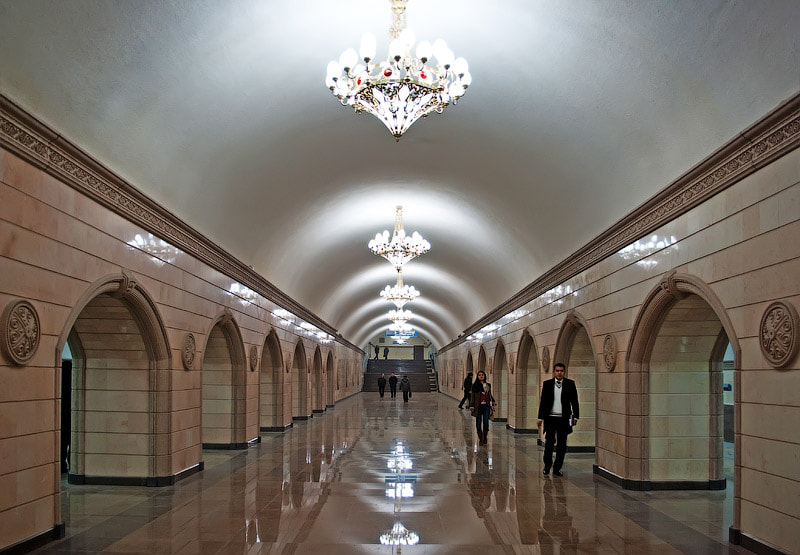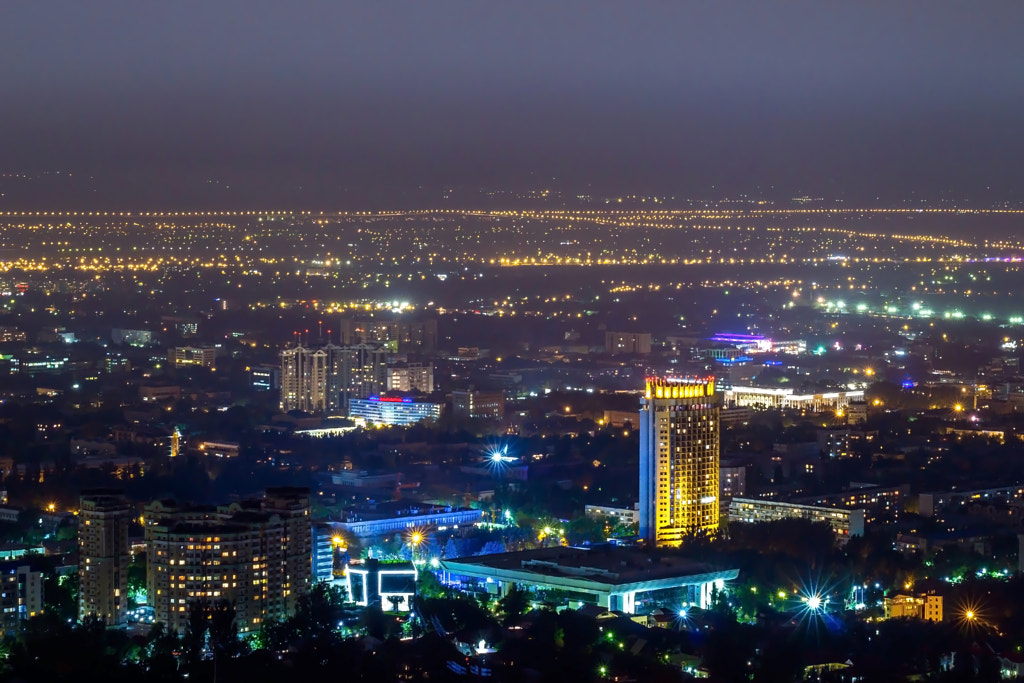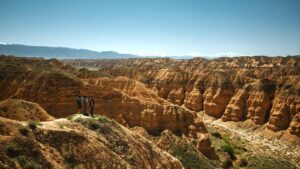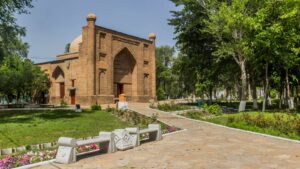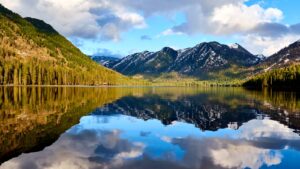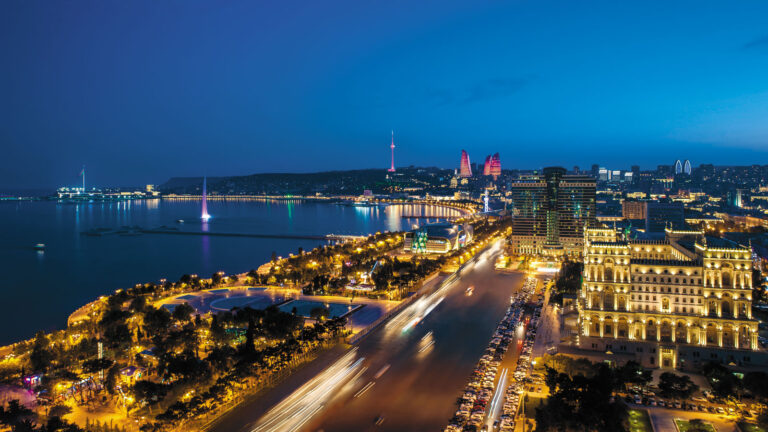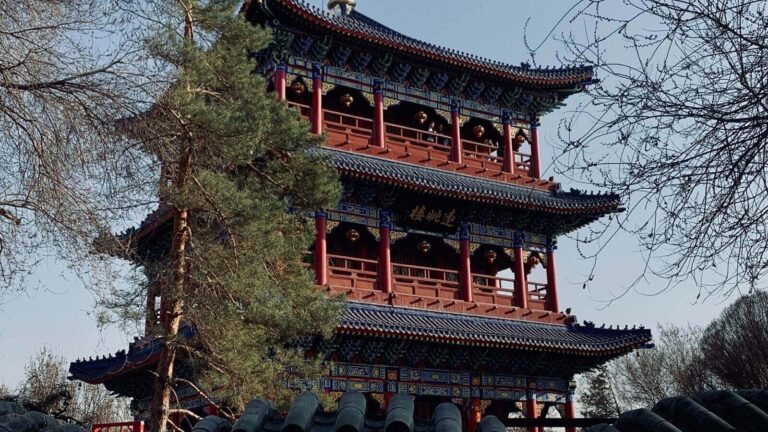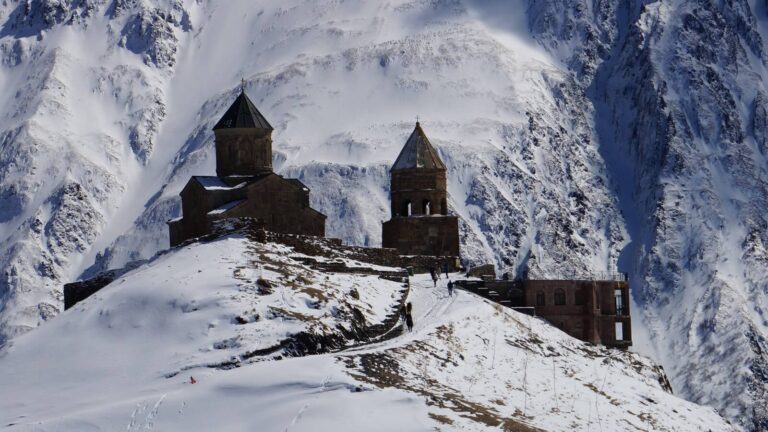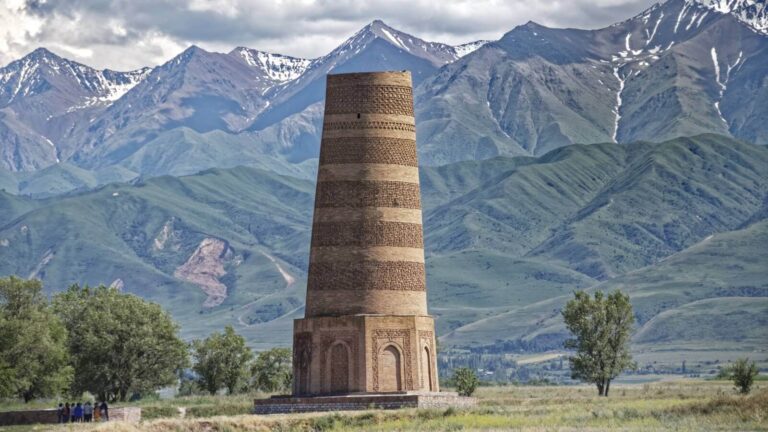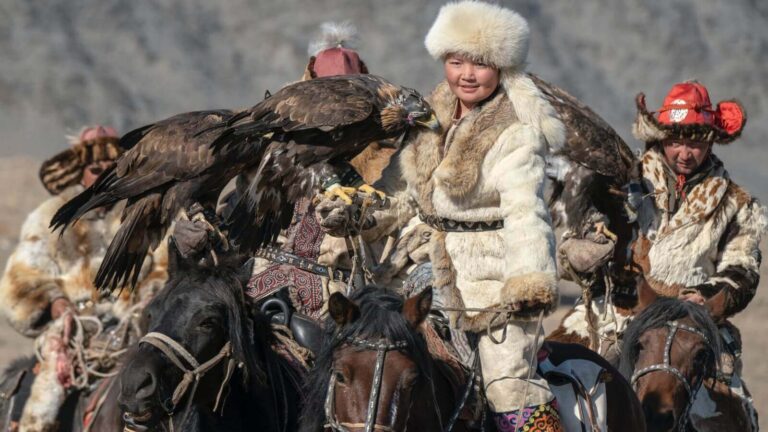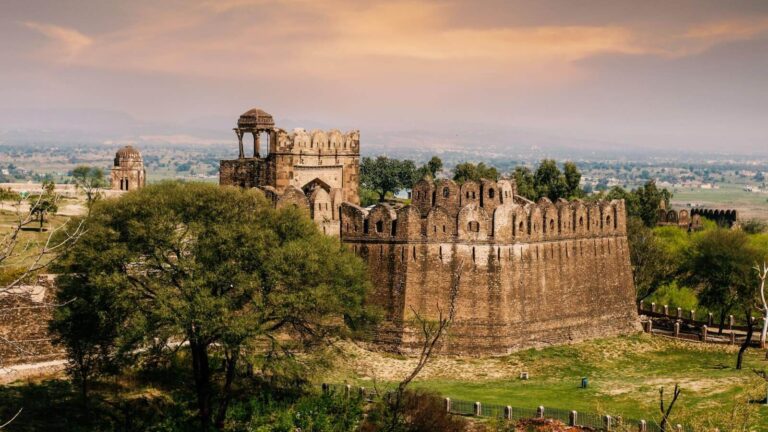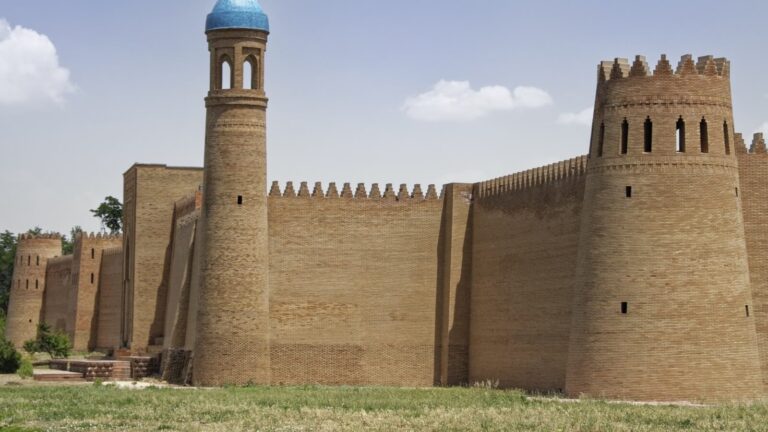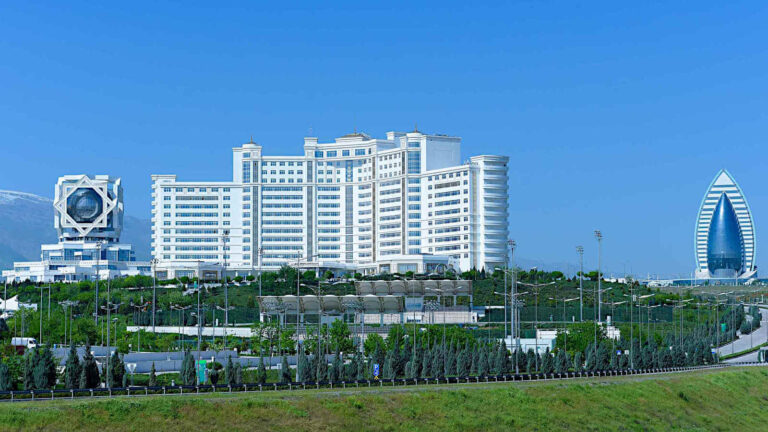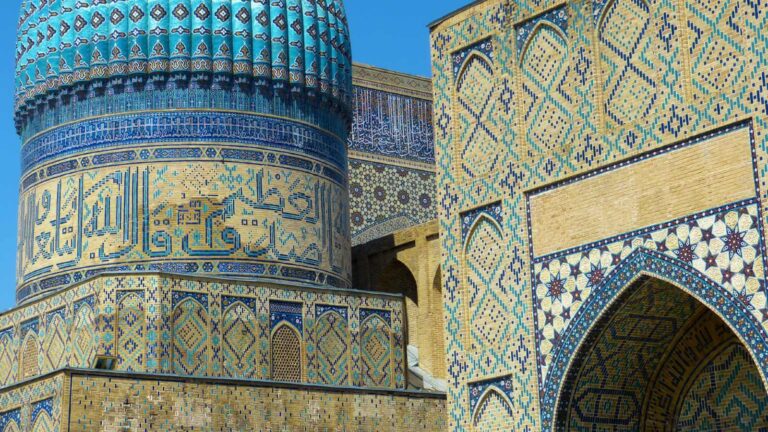Kazakhstan is the country with the most incredible nature and opportunities for adventure holidays along the Great Silk Road. We invite you to visit the ‘sunken forest’, Lake Kayindy in the Almaty region, see the alien landscapes of Boszhira, Tuzbair, Torysh, Airakty in the Mangistau region, go to a piece of Mars on Earth – the Kiin-Kerish area, and also visit a truly historical place – the Baikonur cosmodrome, where the first time a manned space-flight was completed from!
We are waiting for you in our country! Discover amazing and fascinating Kazakhstan!
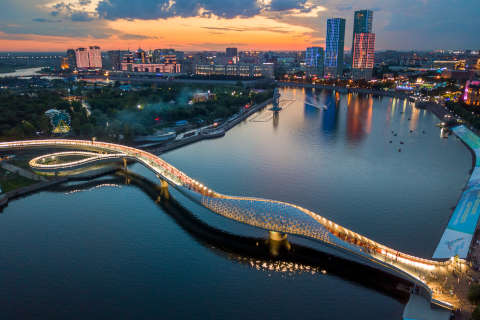
Language: Kazakh, Russian
Currency: Tenge
Capital City: Astana
Population: 19.6 million
History
The history of Kazakhstan is a tapestry woven with the threads of ancient civilizations, nomadic empires, and a complex interplay of cultures. The region’s history stretches back to ancient times, with evidence of human habitation dating as far back as the Paleolithic era. Early inhabitants engaged in hunting, gathering, and herding, establishing the foundations of a nomadic lifestyle that would persist for millennia.
One of the most significant early civilizations in Kazakhstan was the Scythians, a nomadic people known for their prowess in horsemanship and archery. The Scythians dominated the Central Asian steppes from around the 9th century BC to the 3rd century AD, leaving behind rich archaeological remnants, such as kurgans (burial mounds) and golden artefacts. Their legacy played a crucial role in shaping the nomadic traditions that would define the region.
In the centuries that followed, this region played a significant role in the development of world economic and trade cooperation. The Great Silk Road, a vast trade network connecting the East and West, passed through the region, contributing to its cultural diversity and economic importance. However, the true nomadic spirit of the region remained intact, with various steppe confederations and tribal groups holding sway.
Perhaps the most renowned nomadic empire in Kazakhstan’s history was the Mongol Empire, established by Genghis Khan in the early 13th century. The Mongols swept across the steppes, unifying the tribes and leaving a lasting mark on the region’s political and cultural landscape. Following the disintegration of the Mongol Empire, the territory of the modern Kazakhstan was divided into several khanates and tribal territories.
The 18th century saw the rise of the Kazakh Khanate – a centralized state formed by the Kazakh tribes, which endured for several decades until it eventually joined the Russian Empire in the 19th century. Kazakhstan became a part of the Russian Empire, leading to significant demographic changes, economic development, and the introduction of new cultural elements.
In the early 20th century, Kazakhstan experienced political turmoil and played a role in the Russian Revolution and the subsequent Soviet era. It became the Kazakh Soviet Socialist Republic in 1936. Throughout the Soviet period, the region underwent industrialization, but also the consequences of policies that altered its traditional way of life.
Kazakhstan finally gained independence in 1991 when the Soviet Union dissolved, marking the beginning of a new chapter in its history. Since then, it has striven to forge its identity as a sovereign nation, embracing a diverse culture that includes influences from its nomadic past, Turkic heritage, and various ethnic groups. The nation has made significant economic progress and played an important role in Central Asia’s geopolitics, establishing itself as a vital player on the world stage.
Geography and Nature
Kazakhstan is the largest landlocked country in the world, bordered by Russia, China, the Kyrgyz Republic, Uzbekistan, and Turkmenistan. As the ninth-largest country on Earth, Kazakhstan has a varied topography, including boundless steppes, arid deserts and one of the highest mountain peaks on the planet.
The country is home to several iconic species such as the Siberian ibex, saiga antelope, wild horses, snow leopards, lynx, wolves, and bears. Birdlife is also abundant, with species like golden eagles, steppe eagles, northern lapwings and Demoiselle cranes.
The steppes are dominated by grasses such as feather grass, fescue, and wheatgrass. Forests of coniferous and deciduous trees cover the mountainous regions, including spruce, pine, birch, and poplar.
Kazakhstan is home to several nature reserves and national parks that aim to protect the country’s unique biodiversity. These include Aksu-Zhabagly Nature Reserve, Altyn-Emel National Park, Kolsai Lakes, and Ile-Alatau National Park.
Economy
Kazakhstan has a diverse and rapidly growing economy driven by several key sectors.
- Natural Resources: Kazakhstan is one of the world’s leading producers and exporters of oil, natural gas, and uranium. It also has significant reserves of minerals such as copper, gold, and zinc.
- Industrial Development: Kazakhstan has made substantial progress in industrial development, particularly in sectors such as manufacturing, machinery, and chemicals. The government has implemented initiatives to attract foreign investment and promote domestic industries, contributing to economic growth and diversification.
- Agriculture: Agriculture plays a vital role in the Kazakh economy, especially in rural areas. The country has fertile lands suitable for cultivating crops like wheat, barley, corn, and potatoes. Livestock farming is also significant.
- Transport and Logistics: Kazakhstan serves as a crucial transport and logistics hub in Central Asia and beyond, connecting China to European markets over land. The country has invested heavily in infrastructure development, including road networks, railways, and air transport.
People and Culture
Kazakhstan is home to more than 100 ethnic groups, a consequence of migration policies during the Soviet Union era. Kazakhs are the largest ethnic group, followed by Russians, Uzbeks, Ukrainians, and Tatars.
The nomadic heritage of the Kazakh people has greatly influenced their way of life and cultural traditions. Traditional practices such as horsemanship, yurt dwelling, and falconry are celebrated and preserved, offering insights into the nomadic lifestyle.
Kazakh is the official language of the country, while Russian is widely spoken. The diverse ethnic groups also speak their respective native languages, reflecting the multilingual nature of Kazakhstan.
The names of some Kazakhstanis are known all over the world, they conquered the world of fashion, sports and music with their talent. Performers Dimash Kudaibergen, Daneliya Tuleshova, boxer Gennady Golovkin, film director Timur Bekmambetov, clip maker Aisultan Seitov among them.
Important Dates
- January 1-2 – New Year Holiday
- January 7 – Orthodox Christmas Holiday
- 8 March – International Women’s Day
- March 21 – 23 – Nauryz Meiramy (Muslim New Year)
- May 1 – People’s Unity Day
- May 7 – Defender of the Fatherland Day
- May 9 – Victory Day
- July 6 – Capital City Day
- August 30 – Constitution Day
- October 25 – Republic Day
- December 16 – 17 – Independence Day
- Qurban Ait (date changes every year)
Kazakhstan has invested heavily in transport infrastructure post-independence. However, it must be noted that Kazakhstan is a very large country, and visiting different areas takes transit time.
By Plane
Kazakhstan is well-connected by air, with several key airports serving as gateways to the country. The main international airports in Kazakhstan include Almaty International Airport, Nursultan Nazarbayev International Airport in Astana, and Shymkent International Airport.
These airports receive flights from major airlines such as Air Astana, the national carrier of Kazakhstan, as well as international airlines like Turkish Airlines, Aeroflot, Lufthansa, and Emirates.
Almaty International Airport is the busiest airport in the country and serves as a major transit hub in Central Asia. It offers a wide range of domestic and international flights to destinations across Europe, Asia, and beyond.
By Train
Getting to Kazakhstan by train offers a scenic and convenient option for travelers. The country is well-connected to neighbouring countries through an extensive rail network operated by the state railway operator Kazakhstan Temir Zholy (KTZ).
Travelers can visit the KTZ website or use various online platforms to check train schedules, ticket availability, and make reservations in advance.
Train travel in Kazakhstan offers an opportunity to witness the vast landscapes, rolling steppes, and charming rural areas of the country while enjoying the comfort and convenience of rail transportation.
Kazakhstan Railways Website: https://www.railways.kz/
By Car
Traveling to Kazakhstan by car provides an adventurous and flexible way to explore the country. The main land border crossings and checkpoints for car travel include the Chinese-Kazakh border at Khorgos, and the Kyrgyz-Kazakh border at Kordai.
Kazakhstan has a well-developed road infrastructure, including major highways and regional roads, making it accessible for car travel. However, it is important to note that some rural areas may have limited road conditions and services.
Travellers should be prepared with a valid international driver’s license, vehicle documentation, and necessary insurance.
By Bus
Getting to Kazakhstan by bus offers an affordable option for travellers. Several bus routes connect Kazakhstan with neighbouring countries, providing convenient access to various destinations.
Main bus terminals in Kazakhstan can be found in major cities like Almaty, Astana, and Shymkent, serving as hubs for domestic and international bus travel.
It’s advisable to be prepared for potential language barriers and customs procedures at the borders. While bus travel offers an affordable option, travelers should be prepared for longer journey times and basic amenities on some routes.
Kazakhstan’s climate varies significantly from region to region. The western parts, including the Caspian Sea coast, have a more moderate maritime climate, while the central and eastern regions have a more pronounced continental climate. Travellers should check the specific weather conditions of their desired destination and pack accordingly.
In general, the weather in Kazakhstan can be classified into four distinct seasons.
Summer (June to August) is typically hot and dry, with temperatures often exceeding 30°C (86°F) in the southern regions. It is the best time to explore outdoor attractions and enjoy activities like hiking and mountain climbing.
Autumn (September to November) brings cooler temperatures and colourful foliage. It is a great time to witness the stunning autumn landscapes.
Winter (December to February) is cold throughout the country, with temperatures dropping below freezing. The northern regions experience harsher winters, while the south remains relatively milder. Winter sports enthusiasts can enjoy skiing and ice skating in various mountainous regions.
Spring (March to May) is a transitional season, with gradually warming temperatures and occasional rainfall. It is a time of renewal, and nature comes alive with blooming flowers and budding trees.
KAZAKHSTAN WEATHERDiscover Kazakhstan best Destinations on each Season
The key requirements for entering Kazakhstan vary depending on the traveller’s nationality and purpose of visit. Visa rules can be complex and change frequently. It is advisable to check the visa requirements specific to your nationality through the official website of the Ministry of Foreign Affairs of the Republic of Kazakhstan or consult with the nearest Kazakh embassy or consulate in your country.
View more information on https://kazakhstan.travel/en/tourist-help/documents
The World Health Organization (WHO) provides general guidelines on vaccinations for travellers. You can find specific recommendations for Kazakhstan on the WHO International Travel and Health website (https://www.who.int/ith/countries/kaz/en/). Additionally, it is recommended to check with your local health department or visit a travel clinic for the most up-to-date information and personalised advice regarding vaccinations for travel to Kazakhstan.
- Routine Vaccinations: Make sure you are up to date with routine vaccinations such as measles-mumps-rubella (MMR), diphtheria-tetanus-pertussis, varicella (chickenpox), polio, and influenza.
- Hepatitis A: Recommended for all travellers as the risk of contracting hepatitis A can be present in contaminated food or water.
- Hepatitis B: Considered for travellers who may have intimate contact with local residents, require medical treatments, or engage in activities that may expose them to blood or body fluids.
- Typhoid: Recommended for travellers who may be consuming food or drinks from potentially contaminated sources.
- Rabies: For travellers involved in outdoor activities or who may come into close contact with animals.
It is important to consult with a healthcare professional or travel health clinic to assess your individual needs and discuss vaccination recommendations based on your itinerary, duration of stay, and personal health history.
You must have a valid driving license from your home country and/or an International Driving Permit (IDP) to drive in Kazakhstan.
Ensure that your vehicle is properly registered and has valid insurance coverage. It is recommended to carry the vehicle registration documents and proof of insurance while driving.
Be aware that road conditions in certain areas of Kazakhstan may vary, with some remote regions having limited infrastructure and rough roads. Exercise caution and adjust your driving accordingly.
Exercise caution while driving, especially in urban areas where traffic can be congested and unpredictable. Be vigilant for potential hazards and follow recommended safety practices.
Main Regions of Kazakhstan
Driving: Renting a car or driving your own vehicle allows for flexibility and independence while exploring Kazakhstan. Major cities and towns have well-maintained roads, although conditions in remote areas may be less developed. Renting a car is possible in major cities, and several international and local car rental agencies operate in Kazakhstan.
Bus, Taxis, and Ride Sharing: Buses are a popular mode of transportation for both short and long distances within Kazakhstan. Various private bus companies operate routes between cities, offering affordable and convenient travel options. Taxis are also widely available in urban areas, and ride-sharing services like Yandex.Taxi are gaining popularity. Negotiate fares or use meters for taxi rides, and be aware that ride-sharing services may have limited availability outside major cities.
Train: Kazakhstan has an extensive railway network connecting major cities and towns. The trains are comfortable and offer overnight options for long-distance travel. Kazakhstan Temir Zholy (KTZ) is the national railway company and provides comprehensive information on train schedules, fares, and ticket reservations through their official website (https://railways.kz/en).
Air Travel: Domestic flights are available for traveling between major cities and remote regions. Air Astana, the national carrier, operates domestic flights to various destinations within the country. Several regional airports serve as hubs for domestic air travel. It is recommended to check flight schedules, fares, and book tickets in advance through the official website of Air Astana (https://www.airastana.com/).
Public Transport: Public transport is well developed through the country. In all cities there are shuttle buses running, some has operating tram depots. Almaty is a home to metro.
Electricity: The standard voltage in Kazakhstan is 220-240 volts AC, 50 Hz. Power outlets usually accommodate two-pin European-style plugs. It is recommended to carry a universal adapter if your devices use different plug types.
Mobile Phones: Kazakhstan has a well developed mobile network infrastructure, and mobile phones are widely used. The country code for Kazakhstan is +7. Several mobile operators provide services, including Kcell, Beeline, and Tele2.
Postal Services: Kazakhstan’s postal service is operated by Kazpost (https://www.kazpost.kz/). They offer domestic and international mail and parcel services.
Internet Access: Internet access is widely available in Kazakhstan, with broadband and mobile data networks covering most urban and rural areas. Find free Wi-Fi spots in Astana here.
Hotels: Major cities in Kazakhstan have a variety of hotels ranging from luxury to budget options. Booking platforms like Booking.com (https://www.booking.com/) and Expedia (https://www.expedia.com/) provide a comprehensive list of hotels in Kazakhstan.
Vacation Rentals: Vacation rentals, such as apartments, houses, or villas, are popular alternatives to hotels. Platforms like Airbnb (https://www.airbnb.com/) offer a wide selection of vacation rentals across different cities in Kazakhstan.
Budget Lodging: There are affordable guesthouses, hostels, and budget hotels available. These options provide basic amenities and are often centrally located. Hostelworld (https://www.hostelworld.com/) offers listings for budget accommodation.
Camping & RVs: Kazakhstan’s vast landscapes and natural beauty make it suitable for camping and RV travel. There are designated camping areas and national parks where camping is permitted, but the sector has not developed yet, and it remains important to be self-sufficient.
Kazakhstan’s culinary delights are not to be missed. Savour traditional dishes like beshbarmak, a hearty meat and noodle dish, or try kazy, a delicacy made from horse meat. Don’t forget to sample kumys, a fermented mare’s milk beverage, often served from yurts lining country roads, where you will be met with the warm hospitality of the Kazakh people.
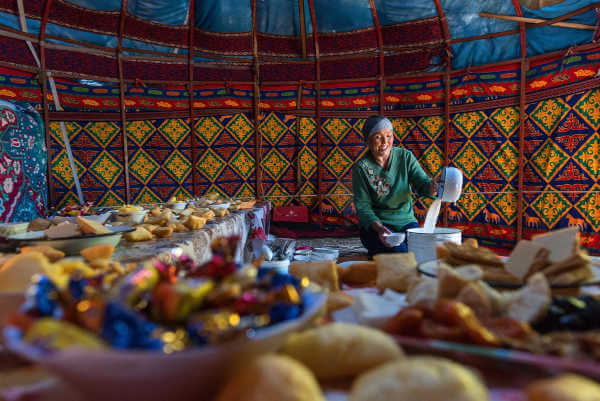
Eating horse meat, cooked in a different ways, is a distinctive characteristics of Kazakhs eating habits. Horse meat is the most valuable type of meat here, and if one will be offered to taste it, it is a sign of great respect and hospitality.
Currency and Exchange Rates
Tenge is the official currency in Kazakhstan.
Currency and Exchange Rates: The official currency of Kazakhstan is the Kazakhstani Tenge (KZT). Major international currencies such as US Dollars and Euros can be exchanged easily.
Use of Credit Cards: Credit and debit cards are widely accepted in major cities, hotels, restaurants, and large retail stores. Visa and Mastercard are the most commonly accepted cards.
Money Transfers: Money can be transferred through banks and international money transfer services like Western Union and MoneyGram.
Taxes: Value-added tax (VAT) is applicable to goods and services in Kazakhstan. The current VAT rate is 12%. Visitors may be eligible for VAT refunds on certain purchases made at participating stores.
Business Hours: Most businesses in Kazakhstan operate from Monday to Friday, with working hours typically between 9 am and 6 pm. Some stores and shopping centers may have extended hours, including weekends.
In addition to the key points related to money, shopping, and taxes in Kazakhstan, it is worth mentioning the significance of Kaspi, a leading digital payment and banking platform. It provides a range of services, including online and mobile payments, money transfers, and e-commerce solutions.
Respect for Customs: Kazakhstani people are known for their hospitality. It is customary to greet people with a handshake and maintain eye contact. Showing respect to elders is highly valued, and it is common to address them using formal titles.
Dress Code: While Kazakhstan is a modern country, it is respectful to dress modestly, especially when visiting religious sites or rural areas. Revealing or provocative clothing may be considered inappropriate.
Tipping: Tipping is not mandatory but is appreciated for good service. It is customary to leave a 10% tip at restaurants and cafes. Some hotels and upscale establishments may include a service charge, so it is recommended to check the bill before tipping.
Religions: Islam and Christianity are the main religions in Kazakhstan. Visitors should be respectful of religious sites and practices. It is best to dress modestly and ask for permission before entering. It is advisable to carry a scarf or shawl to cover your head or shoulders if needed.
Regulations on Alcohol, Smoking, Video, and Photography: Consumption of alcohol is legal in Kazakhstan, but there are regulations regarding public intoxication. It is prohibited to drink alcohol in public places, except in designated areas or licensed establishments. Smoking is banned in most public spaces, including restaurants and cafes.
When taking photos or videos, always ask for permission in sensitive areas such as religious sites or government buildings.
Staying Safe: It is advisable to stay alert and aware of your surroundings, particularly in crowded areas and tourist spots. Take precautions against pickpocketing and keep your belongings secure. Avoid walking alone at night, especially in unfamiliar areas.
Medical Treatment and Insurance: It is important to have adequate travel health insurance that covers medical treatment and emergencies in Kazakhstan. Familiarise yourself with the terms and coverage of your insurance policy. In case of illness or injury, seek medical attention at reputable hospitals or clinics. Carry necessary medications and keep a copy of your prescriptions.
Natural Disasters: Kazakhstan experiences earthquakes.
Emergency Services: The emergency services hotline in Kazakhstan is 112, which can be dialed in case of any emergency situation.
In case of Emergency
Rescue service: 112
Fire prevention: 101
Police: 102
Ambulance: 103
A call to the emergency number from any phone (mobile, landline, public pay phone) is free of charge in Kazakhstan.
Other Useful Contacts
It is also useful to know the short numbers of other services.
- Long-distance and international calls: 171
- Help desk: 118
- Fee-based information: 169


